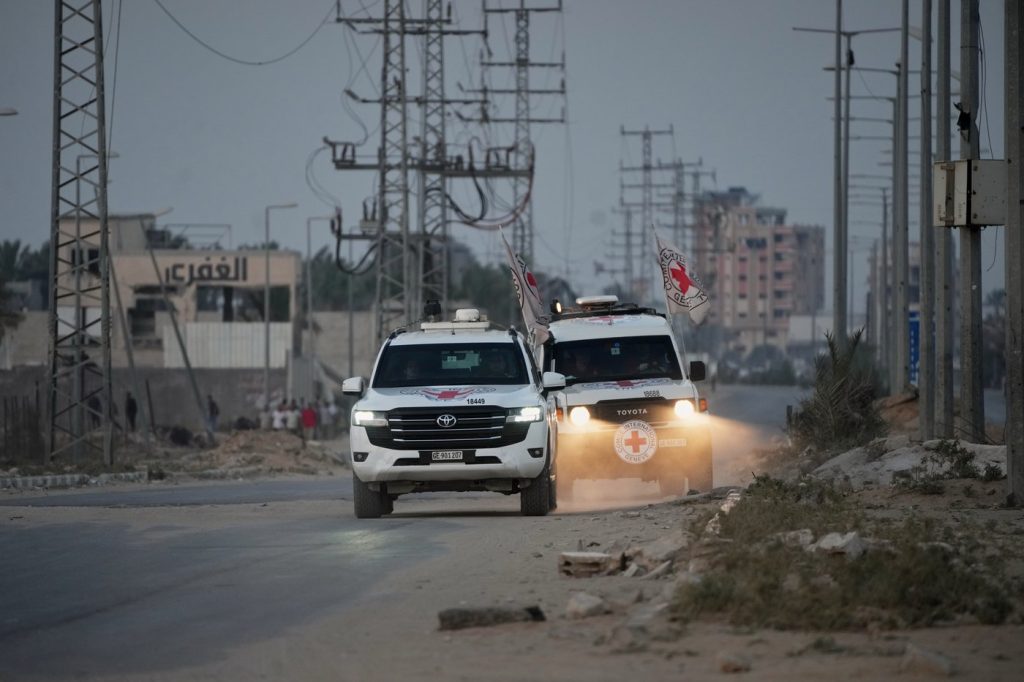JERUSALEM (AP) — The remains of three individuals recently handed over by Hamas to the Red Cross have been confirmed by Israel to not belong to any of the hostages taken during the October 7, 2023, attack that ignited the ongoing war between Israel and Hamas. This revelation, made on Saturday, has the potential to jeopardize the U.S.-brokered ceasefire agreement that was aimed at alleviating hostilities in the region.
The transfer of the remains occurred shortly after Israel returned the bodies of 30 Palestinians to Gaza on Friday, marking the culmination of an exchange wherein militants had also returned the remains of two hostages earlier in the week. This exchange was perceived as a sign that the fragile ceasefire understood under the U.S.-brokered agreement was making progress, yet this latest development calls that assumption into question.
The three unidentified remains were returned to Israel late Friday and underwent examination overnight. According to a military official, intelligence assessments indicated that the remains did not belong to any of the hostages taken in the attack that occurred in early October. A second Israeli military official supported this statement, as did the office of Prime Minister Benjamin Netanyahu, highlighting the uncertainty surrounding the identities of the returned remains and the circumstances under which they were handed off.
As of the ceasefire's inception on October 10, 2023, approximately 17 hostages have been released by Palestinian militants, while the process of returning the last 11 remaining hostages outlined in the truce remains slow. Militants have released just one or two bodies every few days, stalling momentum towards a final resolution.
Since the ceasefire began, Israel has returned a total of 225 Palestinian bodies. However, only 75 of those have been positively identified by their families, according to reports from Gaza's Health Ministry. The origins of these bodies remain ambiguous—they may have perished during the October 7 attack, succumbed to conditions in Israeli custody, or were recovered during military operations conducted in Gaza.
The truce has faced significant challenges, notably earlier in the week when Israeli defense forces conducted airstrikes across Gaza, resulting in over 100 fatalities. These strikes were a response to the death of an Israeli soldier in Rafah, Gaza's southernmost city, and the protracted negotiation process regarding hostages.
As the situation evolves, the dynamics of the ceasefire agreement hang in delicate balance, with each development highlighting the complexities and the human toll of the ongoing conflict between Israel and Hamas.











